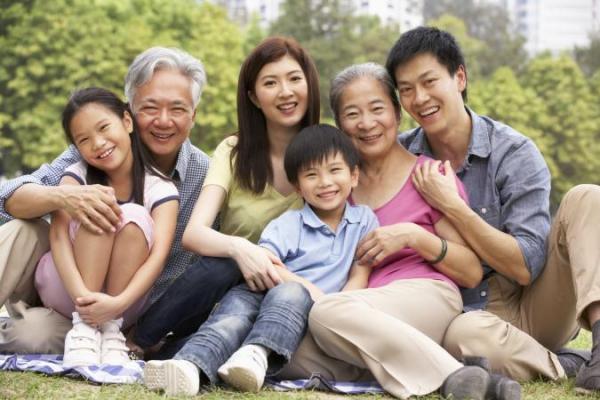伺老困惑:华裔中,青两代人之挑战
Western culture influences sense of duties of different generations
来源: 大中报 南茜(Nancy Jin)

编者按:大批漂洋过海到西方国家投靠成年子女的华裔移民老人们日趋遭受子女的冷落和虐待,而他们的不幸遭遇常常都是拜家人所赐,其主要原因为许多华裔移民在融入加拿大社会的同时一味效仿西方的风俗而将中国传统的孝道价值观抛之脑后。《大中报》将从分别以中年移民Miriam和刚从大学毕业的移民二代Kevin为代表的两代华裔的视角对华裔虐老问题进行探讨。
Editor's note: Thousands of immigrant Chinese seniors that make their journey to join their adult children in Western countries are suffering increased levels of neglect and abuse. And it’s often at the hands of their own families—as new Chinese Canadian immigrants adapt to Canadian society, they are foregoing Chinese traditional values of filial piety in favor of Western norms. In a two-part special, Chinese News addresses elder abuse from the perspective of two different generations—Miriam, a new Chinese Canadian immigrant, and Kevin, a second generation recent grad.


自从儿子多年前移民加拿大后,已有70高龄且体弱多病的宋老太曾一直在中国独居。当她儿子邀请她到多伦多和他全家一起生活时,她满心喜悦,天真地相信自己可以在儿子家安度余生。
Ms. Song, an ailing 70-year-old woman had been living alone in China since her son left for Canada several years ago. When she received an invitation from son to join his family in Toronto, she was grateful, naively believing that she could spend the rest of her life relying on this family.
但是事情并非如其所愿,她发现自己并不为儿子的家庭所接受,并且和儿媳Miriam的关系迅速恶化,宋老太与家人团聚的喜悦之情也迅速消失。在几个月后,Miriam开始直接针对婆婆发难 ,在一次剧烈争吵中,她直言将其轰出家门。倍感屈辱的宋老太随即买了回国机票,含泪离开了Miriam的家,她发誓再也不来加拿大。
But things were not as good as expected. The delight of reunification disappeared as Ms. Song found that she wasn’t quite well accepted into this family, and her relationship with her daughter-in-law Miriam quickly turned sour. A few months later, Miriam started to show a bad attitude towards her, and at one point, she engaged in a big altercation with her and demanded that she leave. Feeling humiliated, Song bought a ticket to her hometown and left Miriam’s home in tears. She vowed to never return to Canada.


46岁的身为职业女性的Miriam在把婆婆赶出家门后对其华裔朋友说:“她难道不该走吗?......家里住个老人生活压力太大,我在家里要当多面手,承担不同的角色,责任……可我的白人同事没有一个和父母或公婆同住的,凭什么我们要这样做?!”
“Isn’t it the right choice for her to make?” says Miriam, a 46- year-old career woman, to her Chinese friends after she kicked her mother-in-law out of her home. “Living with a senior is quite stressful, leaving me juggling between different roles and responsibilities… Besides, none of my Caucasian co-workers would have their parents or in-laws live with them, so why would us?!”
但是,Miriam是一名华裔移民,在遵从传统孝道和价值观的环境中长大。根据中国传统,照顾年迈父母是晚辈应尽的责任和义务。但在婆婆离开后,Miriam的生活并没有因此变得有多轻松。
But Miriam, an immigrant from China, was brought up in a culture that had a traditional value of filial piety, where the younger generation has a duty and responsibility to take care their senior parents. But her mother-in-law’s departure hasn’t made Miriam’s life much easier.


此后,Miriam却一直自疚,也怕自己会被其他华裔社区成员斥为“不道德”或“缺德媳妇”,同时内心的负罪感也令她寝食难安。说到底,他们全家不就是在这种传统义务感的驱使下才决定邀请婆婆前来团聚的么?
Since then, Miriam has constantly worried of being judged as an “immoral” or as “unethical” by her fellow members in the community, and been grappled by a sense of guilt. After all, wasn’t it this cultural obligation that led to their family’s decision to invite Ms. Song to join them?
Miriam仅使许许多多的中年华裔移民中的一员。他们在融入加国生活,接受西方传统价值观的过程中面临着伺老困惑与挑战。在东方尊重老人孝敬老人的传统和西方强调自我和追其个人福祉的西方习俗双重文化冲击下,他们在其传统职责和适应西方文化之间深感无所适从,并被迫地做出种种艰难的选择。
Miriam is one of the thousands of middle-aged Chinese immigrants who face senior care challenges as they adapt to their immigrant lives in Canada and embrace Western traditions and values. Caught between the two different cultures – an Eastern culture that values elder respects and duty of care to the older generation – and a Western culture that emphasizes individualism and personal happiness, they are struggling to reconcile their cultural obligations with their life in Canada.


Miriam称:“我真的很困惑,我不想成为别人眼中的恶媳妇,但同时我也希望能像我的同事一样享受一份宁静而简单的家庭生活。”
“I am really confused,” says Miriam. “I don’t want to be labeled as an evil daughter-in-law, but meanwhile, I want to live a more peaceful and easier family life like my co-workers do.”
在西方文化的影响下,许多移民都着眼于改善加国家庭生活现状,而将他们传统的责任和义务抛之脑后。但这种文化认同过程中是付出代价的,它不仅导致Miriam这代人的困惑挣扎,也使得许多老年人饱受伤害和虐待。据菲沙研究所的资料显示,华裔社区虐老问题日趋严重,其中最常见的虐待方式是精神虐待和将老人抛弃不管。
Under Western culture influences, many immigrants believe they should focus on improving their own life standing, leaving behind their traditional duties and obligations. And this acculturation has not only left Miriam’s generation struggling but the senior generation victimized or abused. According to information from Fraser Institute, elder abuse is a serious problem in the community, with psychological abuse and abandonment being the most prominent.


一名曾经参与菲沙学会虐老问题研究的研究人员称:“在华裔社区里虐老事件屡见不鲜,大多数华裔老人之子女对老人的安康不再过问关心,在我看来这主要是受自我当先,一切只考虑自己的美国文化的影响。”
“There are many cases of elder abuse in the community,” says a participant in the Fraser Institute study on elder abuse. “My understanding is that for most of Chinese people, their children do not feel concern about their parents anymore. That is due to American influences. It is to take care of yourself only.”
由于Miriam的下一代是在西方文化环境中长大,他们对中国传统的孝道价值观更加陌生。因此,Miriam及其同龄人们对其子女承担对父母的义务则更不抱希望,认为他们将彻底地将中国养老文化置于脑后。
Miriam’s next generation who grew up in the Western culture is even more distant away from this Chinese traditional value towards seniors. It seems more natural for Miriam and her peers to expect that their children will never carryout the obligations towards their parents and to abandon this Chinese culture altogether.


Miriam称:“我从来没有指望过养儿防老!我老了也不会和他们住在一起。”
“I’ am not hoping at all!”, says Miriam. “I wouldn’t live with them when I am old.”
网友评论
网友评论仅供其表达个人看法,并不表明大中资讯网立场。评论不可涉及非法、粗俗、猥亵、歧视,或令人反感的内容,本网站有权删除相关内容。